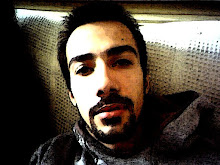After the ritual Mr. Shaman took us back to Baolongshan. The next day he came again with Mrs. Shamaness and took us to the folk-artist who treated us like the most venerable guests one can ever have visit his home. He prepared a table laden with a variety of fruits and asked us to sit at it. I was offered the most comfortable seat, my wife sat on my left and Mr. Shaman on my right. The folk-artist announced that he would entertain us with his performance of some songs well-known among the Khorchins. First he introduced us the traditional musical instruments that he had at his office - which I guess was his home as well.

The instruments: first on the left is called towshuur, the second is morin huur (horse-headed fiddle) the third is called chuur and the last one I don't know. The chuur is said to be a very ancient type of instrument and it is unknown in Outer-Mongolia (The Mongolian Republic).
The folk-artist explained that a knife or a piece of iron, possibly pointed or sharp should be slipped in between the strings and the body of the instrument so as to frighten away evil spirits.
The folk-artist first sang a song about Maozedong, Marx, Engels and Dengxiaoping in Mongolian then he embarrassed me with the question whether Hungarians were also as devoted to communist ideas as the Chinese. I answered with a quick no and asked about the material of which the instruments were made. He answered my question with enthusiasm (wood, horsetail and bone) and continued his presentation with a passage from the Geser epic, and then with another song called Sanjei mama. He instructed his assistant to play the cymbals and Mrs. Shamaness to dance.
After the performance panel the folk-artist and his wife served us a lunch with vodka, beer and tea. The cymbalist drank vodka from a plastic bag and got drunk enough to start talking to me half Chinese half Mongolian with an accent that I could hardly understand. The folk artist noticed my inconvenience and told him to shut up, which made me feel more inconvenient.


Mr.Shaman turned to me and said that next morning he would take us to another shaman in another village nearby. I said: "Ok thank you". After a few seconds of silence he said that there was a little problem, notably that we had forgotten to give money to the spirits the shamans invoked the previous night and stressed that it is not the shamans to whom one should give money but their spirits. I apologized and said that the day before when we visited him we didn't know that we were going to visit other shamans as well and that's why we were unprepared. I said that I was willing to give money (In fact we had bought some presents too) and asked him to come to our hotel for the money and give it to the spirits and that I would also give some money to him for his efforts and expenses. He said ok, and added that one or two years before some Japanese who themselves were also shamans, visited the same shamans in Yaolinmaodu and when the first spirit possessed the shaman they gave 1000 RMB and when the next spirit appeared they offered 2000 RMB. The folk-artist warned us that it that shamans' spirits can easily be offended and so could they wreak vengeance on anybody. I said we didn't have that much money as the Japanese but we would give some. After the lunch the folk-artist gave us traditional Khorchin costumes and asked us to put them on and to have some photos taken with them in front of their home.


The next morning Mr. Shaman and Mrs. Shamaness came to our hotel and I explained that in Hungary it is an offence to give money as a present -which is true- that's why I had been thinking of buying something instead and give it to the shamans before we leave. I gave Mrs. Shaman 600 RMB and told him to give 200 for the shamans in Yaolinmaodu, 200 for himself and 200 for Mrs. Shamaness. I told him I knew it was not a big amount of money but we could not afford to give more. They looked a bit disappointed but thanked for it politely and left the room without mentioning the other shaman in the other village nearby.
We didn't tell them what we thought: If they had told us how much money they had expected us to give to the spirits we would have had the choice to make a decision of attending only one ritual in Baolongshan. But the fact is that in China and I think it is pretty much the same in Mongolia too, people are very concerned about their reputation and afraid of loosing face, that is why they never ask for money unless they don't get automatically. They don't ask for it but they do expect to get and they do everything for a guest with extreme politeness not letting him or her reject anything they offer. I'm not saying that they do it purely for money, they do it mainly in order to enhance their reputation as a good host a good guide or good entertainer. When you ask a Mongol to help you, you give him or her (but mainly him) an opportunity to prove that s/he is the right person to turn to. Asking for help without providing this opportunity I think would be considered discourteous. The price of the service is hardly ever discussed in advance (unless you hire a car, a guide etc.) and at the end you also have your opportunity to prove your generosity by valuing the services with a decent amount of money.





